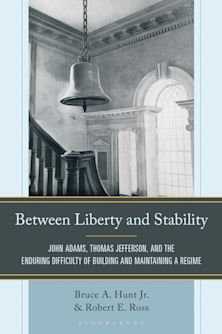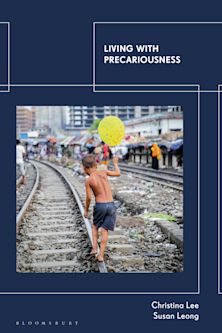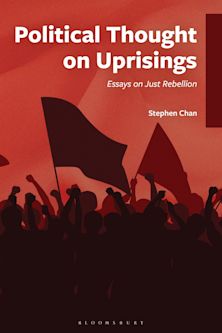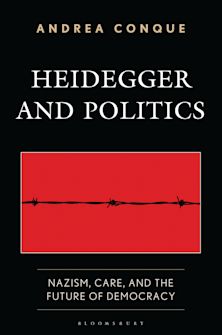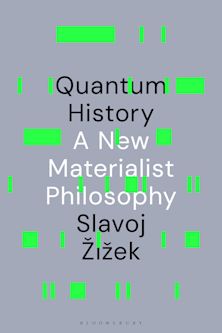- Home
- ACADEMIC
- Politics & International Relations
- Political Theory and Philosophy
- Augustine and Apocalyptic
Augustine and Apocalyptic
John Doody (Anthology Editor) , Kari Kloos (Anthology Editor) , Kim Paffenroth (Anthology Editor) , Jeff Olsen Biebighauser (Contributor) , J. Kevin Coyle (Contributor) , Ellie Gebarowski-Shafer (Contributor) , J. Thomas Howe (Contributor) , Kevin Hughes (Contributor) , Laurie A. Jungling (Contributor) , Kari Kloos (Contributor) , P. Travis Kroeker (Contributor) , Richard Landes (Contributor) , Karla Pollmann (Contributor) , Roland J. Teske (Contributor) , Rocki Wentzel (Contributor) , Gregory Wiebe (Contributor)
Augustine and Apocalyptic
John Doody (Anthology Editor) , Kari Kloos (Anthology Editor) , Kim Paffenroth (Anthology Editor) , Jeff Olsen Biebighauser (Contributor) , J. Kevin Coyle (Contributor) , Ellie Gebarowski-Shafer (Contributor) , J. Thomas Howe (Contributor) , Kevin Hughes (Contributor) , Laurie A. Jungling (Contributor) , Kari Kloos (Contributor) , P. Travis Kroeker (Contributor) , Richard Landes (Contributor) , Karla Pollmann (Contributor) , Roland J. Teske (Contributor) , Rocki Wentzel (Contributor) , Gregory Wiebe (Contributor)
This product is usually dispatched within 1 week
- Delivery and returns info
-
Free US delivery on orders $35 or over
You must sign in to add this item to your wishlist. Please sign in or create an account
Description
Apocalyptic thought pervaded Augustine’s time even more than our own, where it still resurfaces with frequency and intensity. Augustine’s handling of this topic captures him at the height of his powers, exercising his substantial skills at Biblical exegesis and rhetoric, as well as his abilities to deal with the social upheaval that followed on the Fall of Rome in 410. The essays in this book look at Augustine’s thought on apocalyptic, as well as trace Augustine’s influence through the Middle Ages and into modern times.
Table of Contents
Introduction
The End of Time: A Phenomenological ApproachJeff Olsen Biebighauser
Augustine and Apocalyptic: Thoughts on the Fall of Rome, the Book of Revelation, and the End of the WorldJ. Kevin Coyle
Augustine and Apocalypticism in the Rheims New Testament ControversyEllie Gebarowski-Shafer
What’s Left When Nothing’s Left: St. Augustine, Cormac McCarthy, and the ApocalypseJ. Thomas Howe
Augustine and the Adversary: Strategies of Synthesis in Early Medieval ExegesisKevin Hughes
Augustine on Beauty, Bodies, and the Apocalypse Laurie A. Jungling and Rocki Wentzel
Sustaining Hope in Times of Crisis: Spiritual Migration and Sojourn in Augustine’s PreachingKari Kloos
Augustine’s Messianic Political Theology: An Apocalyptic Critique of Political AugustinianismP. Travis Kroeker
The Silenced Millennium and the Fall of Rome: Augustine and the Year 6000 AM IRichard Landes
10. Moulding the Present: Apocalyptic as Hermeneutics in City of God 21-22
Karla Pollmann
10. Augustine on the End of the World: “Cautious Ignorance”
Roland J. Teske, S.J.
11. Augustine on Pagan Demonolatry: Mediation and Apocalypticism in the Opening
Books of The City of God
Gregory Wiebe
Bibliography
Product details
| Published | Nov 07 2013 |
|---|---|
| Format | Hardback |
| Edition | 1st |
| Extent | 268 |
| ISBN | 9780739189221 |
| Imprint | Lexington Books |
| Dimensions | 9 x 6 inches |
| Series | Augustine in Conversation: Tradition and Innovation |
| Publisher | Bloomsbury Publishing |
About the contributors
Reviews
-
A fascinating set of essays by experts in the field of apocalyptic thought, this volume brings Augustine’s eschatological thought into fruitful conversations with figures, ideas, and incidents from later periods. One of the most stimulating and thought-provoking volumes on a doctor of the church recently published, this book will be of interest to scholars of Augustine, historians of apocalyptic, and more generally, to historians of Christianity and its thought.
Kevin J. Madigan, Harvard Divinity School, Harvard University
-
The essays in Augustine and Apocalyptic should, once and for all, counter the mistaken but commonplace notion that Augustine—because he argued against date-setting and millenarian fantasies—was anti-apocalyptic. In fact, Augustine thought long and hard about the apocalypse and penned one of the most important summaries of expectations regarding the end of time. This volume, which collects valuable explorations of his apocalyptic thought, his influence on medieval and reformation theology, and his contemporary relevance, is recommended for those interested in a balanced view of Augustine's apocalypticism.
Richard K. Emmerson, Manhattan College
-
For all his anti-millennialism, Augustine seems an unlikely focus for a study of apocalyptic, but the editors of this volume assemble a fine set of essays to prove the skeptic wrong. Contributions defining apocalyptic and its biblical manifestations, as well as contextualizing Augustine’s own thought-world and his writings about the end-times, provide the reader with the background to probe his enduring influence on thoughts about the end. Essays display his presence as it permeates works from the annotations of the Douai Rheims New Testament to the writings of Jean-Luc Marion and Jean Louis Chrétien, Cormac Mc Carthy, and Charles Taylor. Readers interested in the New Testament, The City of God, as well Augustine’s influence on modern religious literature will all find reasons to read this book from cover to cover.
Maureen A. Tilley, Fordham University













